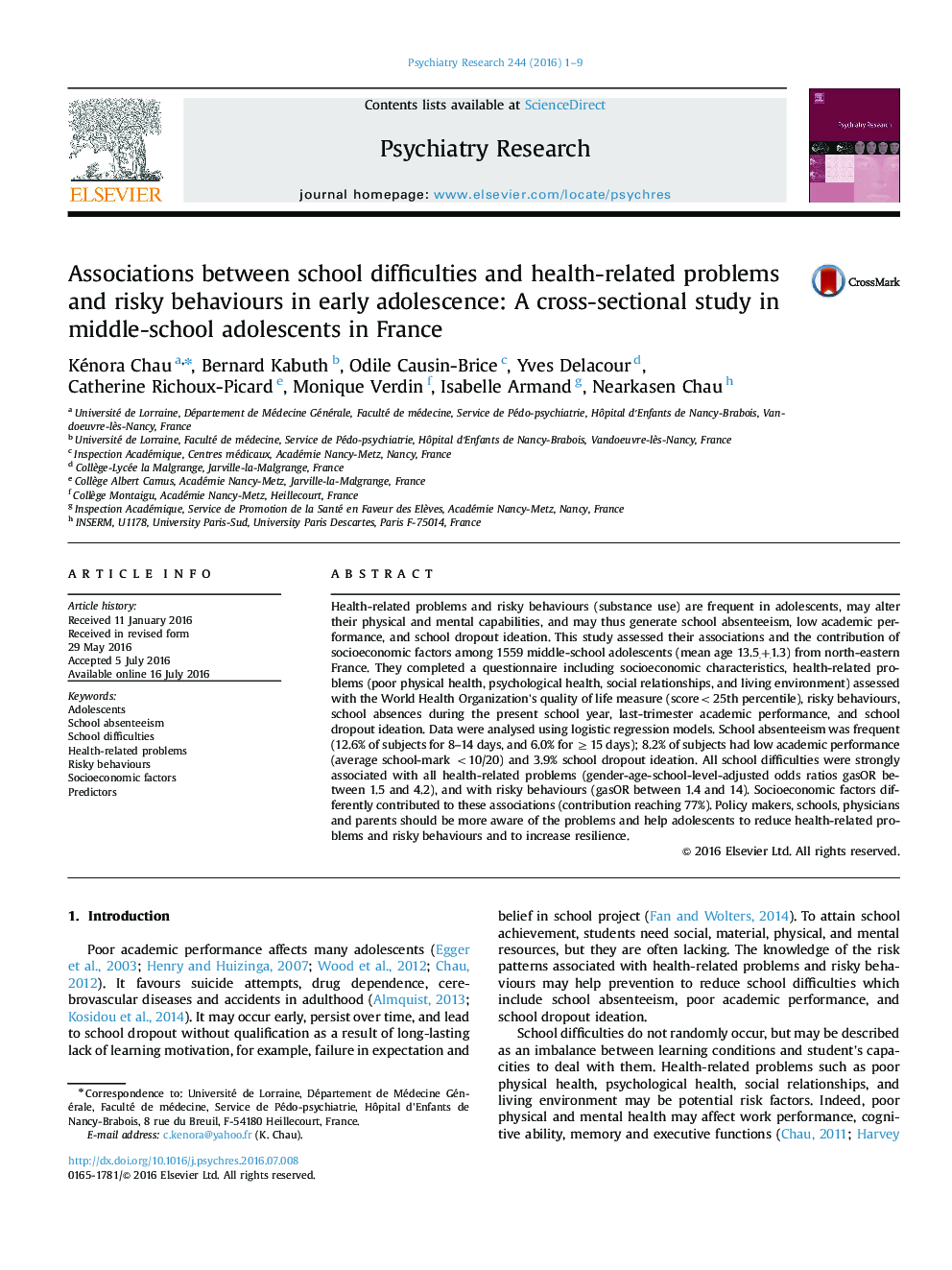| Article ID | Journal | Published Year | Pages | File Type |
|---|---|---|---|---|
| 332986 | Psychiatry Research | 2016 | 9 Pages |
•School absenteeism, low performance and dropout ideation are frequent in youth.•Health-related problems and unhealthy behaviours are also common in youth.•These health and behavioural factors highly impact previous school difficulties.•Socioeconomic factors have a high contribution reaching 77%.•Prevention action should focus on health-related problems and unhealthy behaviours.
Health-related problems and risky behaviours (substance use) are frequent in adolescents, may alter their physical and mental capabilities, and may thus generate school absenteeism, low academic performance, and school dropout ideation. This study assessed their associations and the contribution of socioeconomic factors among 1559 middle-school adolescents (mean age 13.5+1.3) from north-eastern France. They completed a questionnaire including socioeconomic characteristics, health-related problems (poor physical health, psychological health, social relationships, and living environment) assessed with the World Health Organization’s quality of life measure (score<25th percentile), risky behaviours, school absences during the present school year, last-trimester academic performance, and school dropout ideation. Data were analysed using logistic regression models. School absenteeism was frequent (12.6% of subjects for 8–14 days, and 6.0% for ≥15 days); 8.2% of subjects had low academic performance (average school-mark <10/20) and 3.9% school dropout ideation. All school difficulties were strongly associated with all health-related problems (gender-age-school-level-adjusted odds ratios gasOR between 1.5 and 4.2), and with risky behaviours (gasOR between 1.4 and 14). Socioeconomic factors differently contributed to these associations (contribution reaching 77%). Policy makers, schools, physicians and parents should be more aware of the problems and help adolescents to reduce health-related problems and risky behaviours and to increase resilience.
